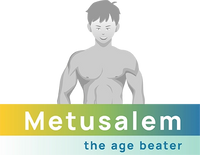Embrace Mindfulness: Stress Reduction for a Longer Life

Frequently Asked Questions
1. What is mindfulness?
2. How can mindfulness reduce stress?
3. What are some mindfulness techniques for stress reduction?
4. What role does nutrition play in stress management?
5. How can I create a mindfulness routine?
In today’s fast-paced world, stress has become a common companion for many individuals. The demands of modern life can often lead to difficulties in maintaining a peaceful mind and a healthy body. However, adopting mindfulness practices alongside specific supplements like L-Citrulline Malate powder can significantly enhance one’s overall well-being and potentially increase longevity. This article delves deep into various mindfulness and stress reduction techniques to help you lead a longer, healthier life.
The Essence of Mindfulness
Mindfulness is the art of being present. It encourages individuals to focus their attention on the current moment, enabling them to experience thoughts and feelings without judgement. This practice has been recognised for its benefits in reducing stress, anxiety, and promoting emotional health.
Understanding Stress
Stress is the body's natural response to challenges or threats. While a certain level of stress can be beneficial by motivating us to perform our best, chronic stress can lead to serious health issues such as heart disease, obesity, and even premature ageing. This is where mindfulness can play a critical role.
The Benefits of Mindfulness for Longevity
Engaging in mindfulness practices can significantly affect your health and longevity. Here's how:
- Reduces Stress Levels: Regular mindfulness practice helps lower the body's stress response, enhancing the immune system and promoting a sense of calm.
- Improves Emotional Health: Mindfulness can lead to reductions in depression and anxiety, fostering a positive outlook on life.
- Enhances Focus: By training your mind to pay attention to the present, you can improve concentration and mental clarity.
- Promotes Healthier Choices: Mindful individuals are more likely to make healthier lifestyle choices, including diet and exercise, which directly impact longevity.
Mindfulness Techniques for Stress Reduction
Here are some effective mindfulness techniques that can help you manage stress and improve your quality of life:
1. Meditation
Meditation is one of the most popular mindfulness practices. It involves focusing your mind and eliminating distractions, allowing you to connect with your inner self. You can start with just a few minutes each day and gradually increase the duration. Try these approaches:
- Guided Meditation: Use apps or online videos to help guide your practice.
- Breath Awareness: Concentrate on your breathing, noticing the breath as it enters and exits your body.
2. Mindful Breathing
Mindful breathing is simple yet powerful. It involves taking deep, conscious breaths, helping you focus on the present moment. Here’s a technique to try:
- Find a quiet space to sit or lie down comfortably.
- Inhale slowly through your nose for a count of four.
- Hold your breath for a count of four.
- Exhale slowly through your mouth for a count of four.
- Repeat this for a few minutes until you feel relaxed.
3. Body Scan
A body scan is a mindfulness technique where you focus on different parts of your body, promoting relaxation and awareness. To practice:
- Lie down comfortably with your eyes closed.
- Start by focusing on your toes, slowly moving up to your head.
- Notice any sensations or tensions and consciously release them with each exhale.
Integrating L-Citrulline Malate Powder into Your Routine
Managing stress isn't just about mindfulness; nutrition plays an essential role too. Incorporating supplements like L-Citrulline Malate powder into your diet can potentially enhance physical performance and recovery. This amino acid can aid in the production of nitric oxide, promoting blood flow and reducing fatigue, which indirectly assists in stress management.
The Synergy of Mindfulness and Nutrition
Mindfulness, when combined with proper nutrition, can create a powerful tool to enhance overall well-being. Here are some tips to enhance the effects of your mindfulness practices through nutrition:
- Stay Hydrated: Dehydration can affect your mood and energy levels. Drink plenty of water throughout the day.
- Mindful Eating: Apply mindfulness to your meals. Take time to enjoy your food, noticing the flavours and textures.
- Balance Your Diet: Incorporate a variety of foods, including fruits, vegetables, whole grains, and lean proteins. Consider supplements like L-Citrulline Malate powder for added benefits.
Creating a Mindfulness Routine
Implementing mindfulness techniques in your daily life doesn't have to be overwhelming. Here are some steps to create a personalised mindfulness routine:
1. Set Realistic Goals
Begin by setting achievable targets. Start with short sessions of meditation or breathing exercises and gradually build your practice over time.
2. Schedule Your Practice
Designate a specific time each day for your mindfulness exercises. Consistency is key to forming new habits.
3. Find a Comfortable Space
Choose a quiet, comfortable space where you won’t be disturbed during your mindfulness sessions. A dedicated spot can help reinforce your practice.
4. Track Your Progress
Keep a journal to note your experiences, feelings, and observed benefits. Seeing your progress can motivate you to continue.
The Importance of Community
While mindfulness can be practised individually, engaging with a community can enhance the experience. Consider joining local groups or online forums where you can share experiences and support each other on your mindfulness journey.
Overcoming Challenges
It’s common to face challenges when incorporating mindfulness into your life. Here’s how to overcome some typical obstacles:
1. Lack of Time
If you're struggling to find time, even a few minutes of mindfulness each day can be beneficial. Integrate practices into your existing routine, such as mindful walking or breathing during breaks.
2. Distracting Thoughts
It’s normal to have wandering thoughts during mindfulness practice. If this happens, gently acknowledge the thoughts and guide your focus back to your breath or body sensation.
3. Frustration with Progress
Mindfulness is a skill that takes time to develop. Be patient with yourself and embrace the process, knowing that every little effort counts.
Embrace a Mindful Future
The journey towards mindfulness and stress reduction doesn’t end here. As you continue to explore these techniques and embrace supplements like L-Citrulline Malate powder, remember that longevity is not merely about adding years to your life, but adding life to your years. By fostering a mindful approach, you can unlock your potential for a healthier, longer, and more fulfilling life.

